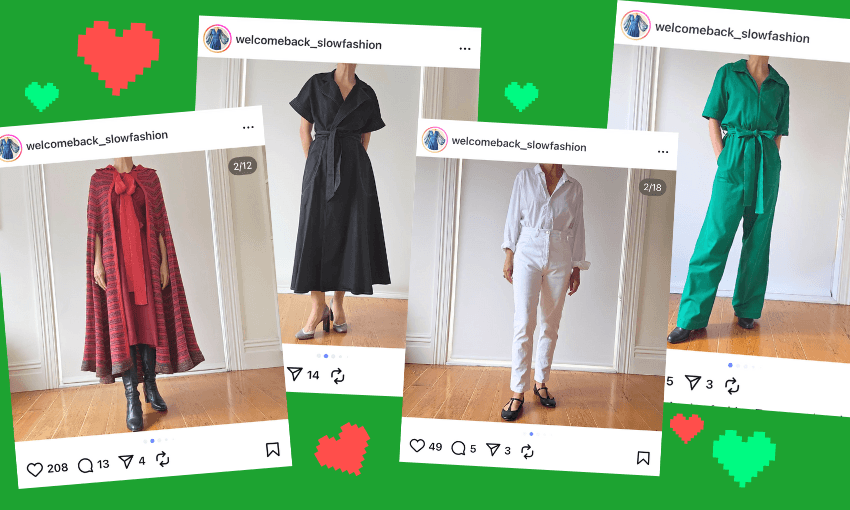Is this really the best life gets?
Want Hera’s help? Email your problem to helpme@thespinoff.co.nz
Kia ora Hera,
Life seems to be shit right now on a number of levels – politically, in my job, and in many other spheres I don’t need to go into.
First, politically – obviously things are horrendous, and I’ve seen your advice previously that things have kind of always been horrendous which is both terrifying and comforting, but mostly terrifying.
Second, my job extremely sucks A) because it’s in the public sector, and B) because my manager is a lovely person but completely incompetent at doing their job which is leading to total chaos in my team. Like this manager can’t even show up to work on time, let alone organise a complex work programme and stay on top of everything.
Anyway, these are not necessarily the problems I want you to help me solve – really my problem is this: I’ve come to the conclusion that much of life will just be existing in the shitness, being aware of the problem and having to wait for it to get better/keep going anyway/do what I can (which is minimal and ineffective). This idea can be applied to anything really – the climate crisis, my loveable flatmates who don’t do their chores, unideal family relationships, and everything else under the sun.
I’m the sort of person that has a compulsion to take immediate action once I stop ignoring and numbing out the problem areas of my life and actually identify a problem – once I realise I need to have a hard conversation with a friend, I want it to happen ASAP; once I finally acknowledge the feeling of frustration I have, I have to solve it. it’s totally reprehensible to me that I will have to endure getting to know all of life’s problems on a deep, detailed level and then just exist through them, unable to do really anything about them because sometimes the conversations don’t solve everything, and capitalism means that I really will just always have to have a job, and like it or not, I really can’t control everything in the universe.
I thought I’d appeal to someone whose advice column I’ve thus far fully agreed with, and whose writing style makes me laugh and feel slightly less shit about the world. How can I exist while everything sucks? How do I go on? To be sure, there are so many good things in my life – my wonderful partner, friends, love, joy, etc – but when my job takes up so much of my life, and I live surrounded by sucky things, everything still weighs on me a lot. I don’t want to have to be in “ignorant bliss” of my problems in order to be happy, but there’s only so much frustration I can take! Any thoughts would be gratefully received
Ngā mihi,
Helplessly Hoping

Dear Helplessly Hoping,
Let’s pretend that none of us exist for a reason. That through the grace and tenacity of some primordial slime, we have the capacity to perceive the world around us. Bread! Rhinestone cowboy boots! Bach! Spiderman! The sunset over the Grand Canyon! Our ancestors survived ice ages and famines and feudalism, and plagues. They built pyramids and aqueducts and painted galleries full of naked women eating grapes. They invented cuneiform and gunpowder and rotary blades, and now here in the 21st century, I can write the sentence “the monkey extracted the pearl-handled revolver from the senator’s unattended handbag, and climbed into the waiting helicopter,” and have you understand me perfectly.
If I have ever, for one moment, given the impression that the world was nothing but a crock of shit, may God fire me headfirst out of one of those novelty circus cannons. I love this cave and the shadows blowing over it. Here we are, at the heart of the mystery, in a universe beyond our comprehension, crawling along the surface of time like ants over a Rembrandt. Tell me honestly, doesn’t it make you so glad to be alive, you want to throw up?
Obviously, as I write to you, things are geopolitically cooked. But when haven’t they been? Life has been hard and remains hard, no matter how many varieties of scented toilet cleaner one has access to. But what is also true is that life is unbearably wonderful and full of joy.
I’m not saying that the world is a good place. I am not even saying people are naturally kind at heart, or that things will get better. What I am saying is that the fact that any of us exist at all is a miracle, and just as bad things happen for no reason, good things happen for no reason. That the world will change you in ways you didn’t think possible, whether or not you want it to. That even when life is bad, it’s interesting.
I know this is an irritating thing to hear, especially if you’re going through a tough time. But the reason I’m saying it is because I don’t think you need advice on how to deal with your useless boss or your messy flatmates or your difficult family members. I think you need an existential pep talk.
Usually, I’m a little more circumspect about dispensing unsolicited optimism because people don’t like to hear it. There’s nothing more annoying than asking for help and being told the universe is beautiful and we are all lucky to be alive. But in all seriousness, the world is beautiful and we are lucky to be alive.
Sometimes when you’re struggling, it can be hard to see beyond the tedium. It can feel gauche, even borderline unethical, to be too positive about life when there’s so much suffering in the world. I don’t want to pretend that happiness is a skill issue, or that you can Eat Pray Love your way out of a depressive episode. Obviously, it’s easier to summon up a little joie de vivre if you’re not getting evicted from your apartment. But whatever the current state of the world, the only place any of us can live is in our own minds. So it’s in your best interests to find a strategy to survive your own personality.
I do think it’s possible, to some degree, to intentionally shape your perception of the world. This is not easy. But if you’re constantly repeating the mantra “life is terrible” or “I must kill again before the moon is full”, it’s going to calcify within you. I don’t have a degree in cognitive behavioural therapy, so I’m not sure what to suggest. For some people, meditation helps. For others, it’s about trying to intentionally rewrite negative thought patterns. I know the idea of “practising gratitude” sounds disgusting, but there are plenty of things to be grateful for that don’t have the cadence of an embroidered throw pillow. Vincent Price. Square dancing. Shrek 1 & 2. You have to find your own poison and drink it. Maybe the first step is acknowledging that you are hostage to this planet, and it’s incumbent upon you to apply all your intelligence and creativity towards finding a way to be at peace.
You say that you are a person who has the compulsion to take immediate action to solve your problems. I think this is a good thing! It shows that you have the courage and drive to change your life. Obviously, not all problems are solvable. We all have to coexist with difficult people, which requires resilience and patience. But I don’t think you have to live in a state of “ignorant bliss” to enjoy your life. It’s not delusional to love the world.
If you are truly mired in despair and cannot shake it off, I’d recommend you seek some professional help. But the next time you go for a walk in a supermarket, try to remove the goggles of habit. As Jordan Peterson said:
If my pep talk didn’t do it for you, here are a few alternatives.
Whatever you think of David Foster Wallace’s nefarious personal life, This is Water is a classic for a reason.
In the vein of American commencement speeches, you can do worse than George Saunders.
And my personal favourite, old Kurt Vonnegut.



